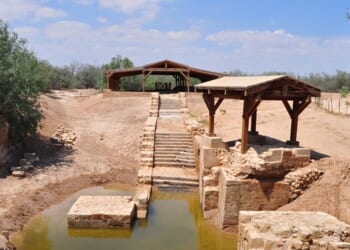The number of people claiming asylum in the UK has increased in the last year to the highest level on record. A total of 111,084 people claimed asylum in the UK in the year ending June 2025 – 14% more than in the year ending June 2024 and 8% more than the previous peak of 103,081 in 2002.
However, not all of these people were successful in receiving asylum support. At the end of June, there were 106,075 individuals in receipt of asylum support, 5% higher than a year ago, but 14% lower than at the end of September 2023, when the number of supported asylum seekers peaked at 123,758 people. Yet, a fifth of all of those with support in the UK are now concentrated in one region – and it’s not the capital. Recent Government data has revealed surprising regional disparities in where the supported population are being housed, with some areas taking on a far greater share than others. At the end of June 2025, almost nine in 10 (89%) of supported asylum seekers were located in England alone, according to Home Office statistics. However, London only took second place on the list for the region with the highest total supported population, with 17,161 people, or 16%.
The North West of England, which includes cities like Liverpool and Manchester, as well as towns like Blackpool, had the highest number of supported asylum seekers, with 20% – or one-fifth – of the total supported population, or 21,196 people. After London, the West Midlands took third place, with 11.4% of the UK’s total, followed by Yorkshire and the Humber, which came fourth with 10%.
At the other end of the scale, Northern Ireland had the lowest total supported population as of June 2025, with just 1,068 individuals, equivalent to just 1%. Wales took a higher share, with 3.2% (3,365 individuals), while Scotland had 4,195 individuals and 4% of the UK total.
Of individual local authorities, Glasgow City accommodated the highest number of asylum seekers (3,844), followed by Birmingham (2,755), Hillingdon (2,481), Liverpool (2,361), and Manchester (1,997), according to the Home Office.
As of June 30, 30% of the supported population resided in hotel accommodation – 8% more than at the end of June 2024, but 43% lower than the peak of 56,042 at the end of September 2023.

















